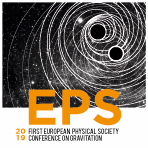Speaker
Description
In this work, we study the impact of quantum entanglement on the two-point correlation function and the associated primordial power spectrum of mean square vacuum fluctuation in a bipartite quantum field theoretic system. The field theory that we consider is the effective theory of axion field arising from Type IIB string theory compactified to four dimensions. We compute the expression for the power spectrum of vacuum fluctuation in three different approaches, namely (1) field operator expansion (FOE) technique with the quantum entangled state, (2) reduced density matrix (RDM) formalism with mixed quantum state and (3) the method of non-entangled state (NES). For massless axion field, in all these three formalism, we reproduce, at the leading order, the exact scale-invariant power spectrum which is well known in the literature. We observe that due to quantum entanglement, the sub-leading terms for these thee formalisms are different. Thus, such correction terms break the degeneracy among the analysis of the FOE, RDM and NES formalisms in the super-horizon limit. On the other hand, for massive axion field, we get a slight deviation from scale invariance and exactly quantify the spectral tilt of the power spectrum in small scales. Apart from that, for massless and massive axion field, we find distinguishable features of the power spectrum for the FOE, RDM, and NES on the large scales, which is the result of quantum entanglement. We also find that such large-scale effects are comparable to or greater than the curvature radius of the de Sitter space. Most importantly, in the near future, if experiments probe for early universe phenomena, one can detect such small quantum effects. In such a scenario, it is possible to test the implications of quantum entanglement in primordial cosmology.

